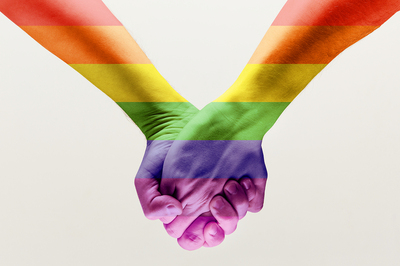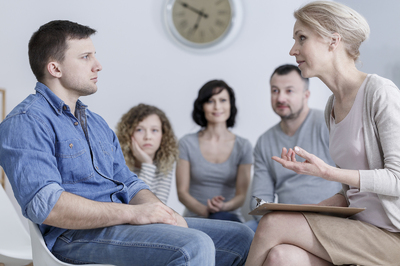
Family support and understanding can be the difference between lasting recovery and relapse.
Many families struggle with how to deal with a loved one who has a substance use disorder, but when that loved one is also part of the LGBTQ community, there may be extra challenges involved. Because of this, finding appropriate addiction treatment is extremely important. Here’s a closer look at LGBTQ addiction, its impact on the family, and how to find LGBTQ addiction treatment with a family focus.
LGBTQ Addiction and Its Impacts
Members of the LGBTQ community have higher rates of drug and alcohol use than their non-LGBTQ peers. They also have higher rates of addiction. This is attributable to a number of factors, including stress, limited treatment services for LGBTQ people, and potential discrimination in addiction treatment.
Explains the Substance Abuse and Mental Health Services Administration (SAMHSA of this phenomenon, “LGBT youth use alcohol and drugs for many of the same reasons as their heterosexual peers…However, LGBT youth may be more vulnerable as a result of the need to hide their sexual identity and the ensuing social isolation. As a result, they may use alcohol and drugs to deal with stigma and shame, to deny same-sex feelings, or to help them cope with ridicule or antigay violence.”
On a similar note, while there are stigmas associated with substance abuse and addiction for all members of the population, LGBTQ individuals face heightened challenges. For starters, many have already experienced pronounced incidents of isolation, alienation, acceptance, and internal conflicts throughout their lives. And while stigmas about sexual orientation are going away, many struggles remain.
LGBTQ Addiction and Family
Research indicates that family acceptance of LGBTQ adolescents can be an effective defense against depression, substance abuse and suicidal behavior in early adulthood. Says Ann P. Haas, Ph.D., Director of Prevention Projects for the American Foundation for Suicide Prevention, of the findings, “With this new groundbreaking study, Ryan and her colleagues have provided the strongest evidence to date that acceptance and support from parents and caregivers promote well-being among LGBT youth and help protect them from depression and suicidal behavior. These findings open the door to a whole new focus on how families can be helped to more fully engage in the kind of behaviors that reduce suicide risk in LGBT adolescents and young adults.”

Addiction is isolating — especially so for members of the LGBTQ community who may already feel isolated. Family involvement in treatment offers a vital sense of connection and support.
A study from the Family Acceptance Project (FAP) further supports our understanding of the profound degree to which family acceptance is essential to LGBTQ health and wellness.
Certainly, family dynamics have a direct impact on LGBTQ addiction, but the converse is also true. We often say that “addiction is a family disease,” and this absolutely holds true in the case of LGBTQ addiction. Explains Psychology Today of the effects of addiction on a family, “The havoc active addiction creates in families and relationships stresses everyone in these ‘systems’ — parents, children, siblings, spouses, partners, close friends, etc. Active addiction destabilizes the home environment, disrupts family life and muddling relationships, and often compromises finances, as well as mental, emotional, and physical health. Without assistance and unless family members and significant others learn and practice how to do things differently, these effects can be chronic and long-term.”
Addiction doesn’t exist in a vacuum; it exists in the context of real-world situations in which many factors come into play — especially when it comes to LGBTQ individuals. Family understanding and involvement can be a key facilitator of recovery, but only if the treatment program addresses the underlying issues which led to substance abuse in the first place and which remain an impediment to sobriety and recovery. St. Louis’s Harris House has extensive experience providing targeted addiction treatment for LGBTQ addicts and the people who love them. Call us to learn about admissions today.







